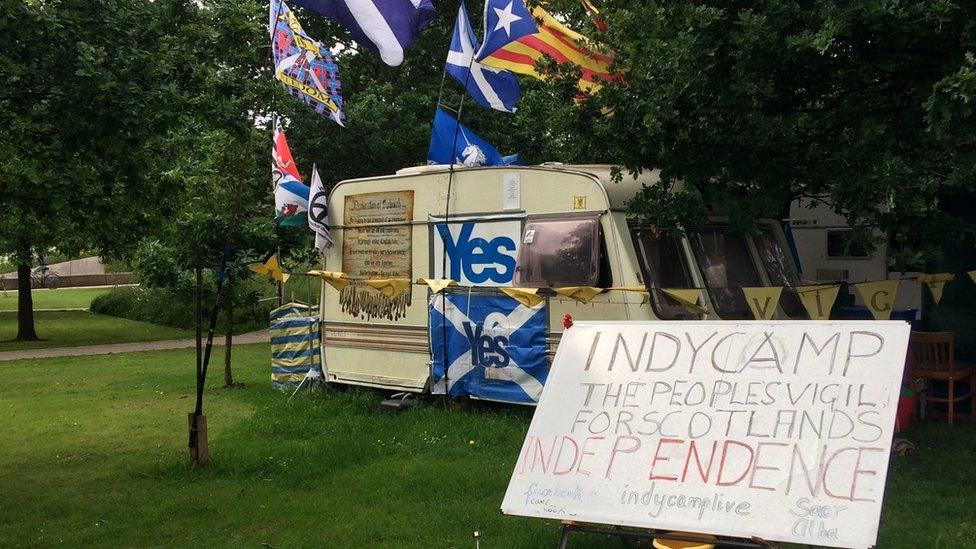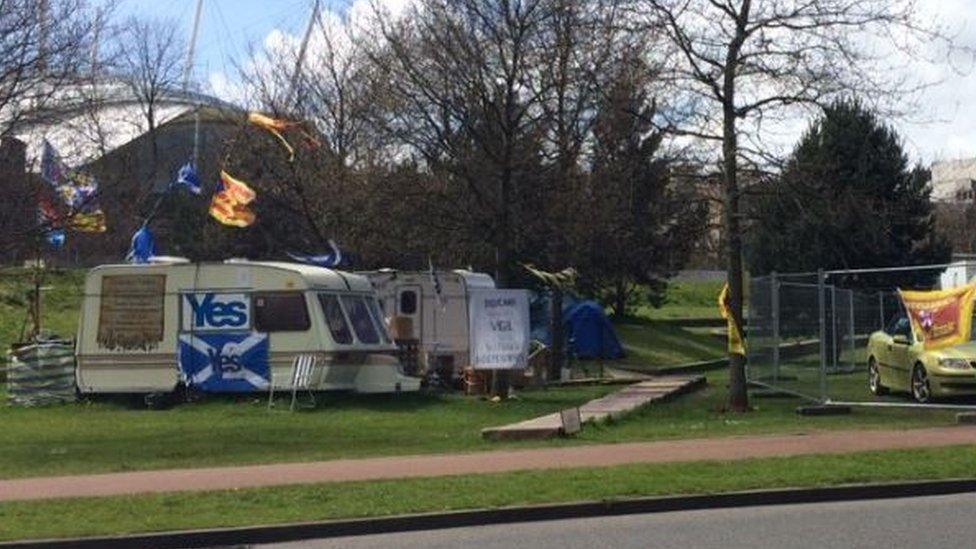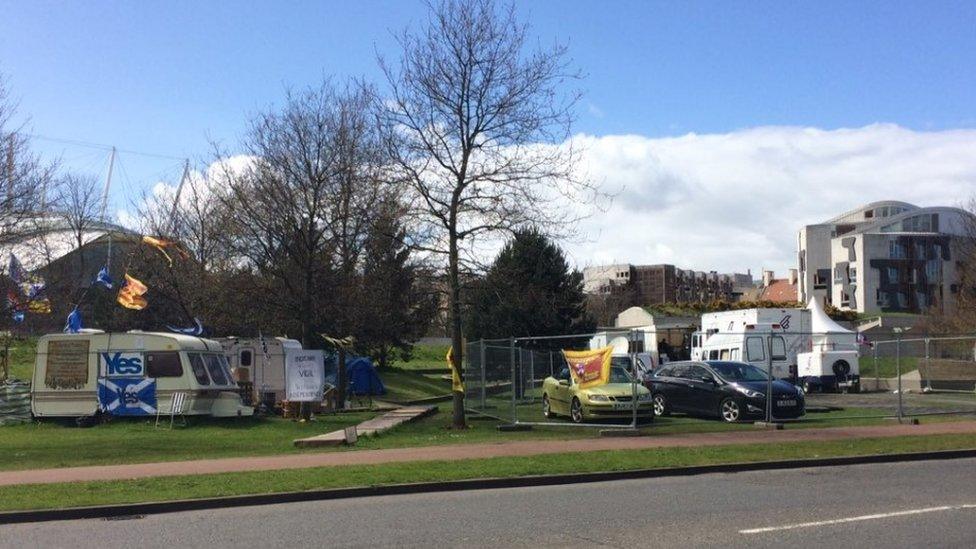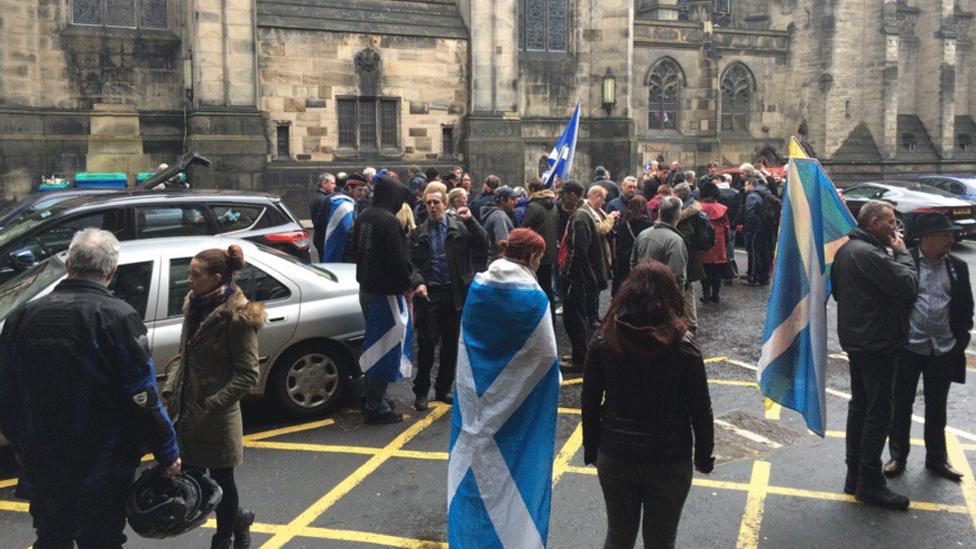Parliament says evicting IndyCamp would not breach human rights
- Published

The independence camp was set up in November 2015
Evicting independence campaigners from outside Holyrood would not breach their human rights, the Scottish Parliament has argued.
Lawyers for Holyrood's corporate body argued there were alternative ways to protest, although the campers say they have a right to freedom of expression.
Lord Turnbull is being asked to decide whether evicting the IndyCamp group could infringe on their human rights.
The camp has been in place outside the parliament since November 2015.
In his address to the Court of Session on Wednesday, Gerry Moynihan QC - who is acting on behalf of the parliament - said there was a distinction between restricting freedom of expression and restricting the precise manner of expression.
He added that there were plenty of ways for the campers to make their point and protest "without a permanent encampment".
Mr Moynihan presented pictures to the court showing damage to grass caused by the campers' parked vehicles.
He said: "There is concern that this is becoming a public car park."
The court was also read excerpts from a statement from the Scottish Parliament's chief executive Sir Paul Grice who said that IndyCamp had acted as a "magnet" with a variety of groups asking if they could camp. Such requests have all been refused.
Sir Paul's affidavit said that the parliament must be representative of all the people, and give equality of access for all and the camp was "completely at odds" with that.
Letter from Christ
Two respondents for the camp also put forward their cases.
Richard McFarlane, who had previously insisted in court that Christ had returned to Earth and had given permission for the camp to take place, as well as trying to call the Queen as a witness. spoke first for the camp.
He produced a letter signed "Christ, King of Scotland", which claimed to be from the "lawful owner of this entire world".
It contended that the courts are illegitimate, and that the "pretended judges and their fraudulent Queen are guilty of capital crimes and should all be executed".
The court also heard from another camper, Garry Mitchell, who said the campers had the right to assembly and freedom of speech. He said "free speech would mean nothing if there was no use of public spaces to make those views known".
He argued that evicting the IndyCamp would be "an affront to democracy, to the rule of law and to this court".
Earlier, Lord Turnbull had dismissed a bid by three of the campers to adjourn the case.
Three of the group had obtained the services of a lawyer, advocate Jamie Gardiner, and he asked for a pause of eight to ten weeks for applications for legal aid to be processed.
Lord Turnbull rejected this, pointing out how long the proceedings had already been going on.
Mr Gardiner will put forward arguments on behalf of his three respondents on Thursday, followed by second respondent Arthur Gemmill.
- Published14 June 2016

- Published5 May 2016

- Published24 March 2016
